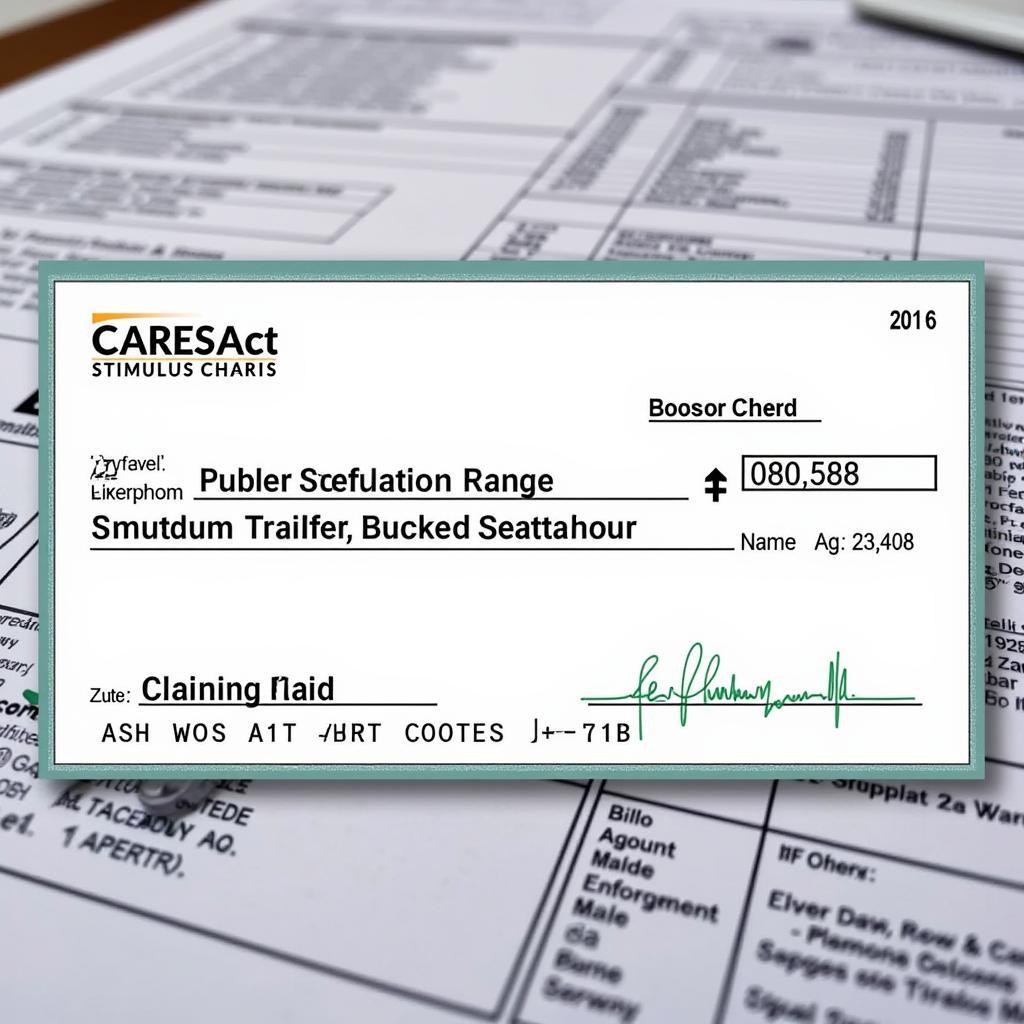The CARES Act, officially known as the Coronavirus Aid, Relief, and Economic Security Act, was a $2.2 trillion economic stimulus bill passed by the US Congress and signed into law in March 2020. It was designed to provide fast and direct economic assistance for American workers, families, and businesses navigating the economic fallout of the COVID-19 pandemic. Understanding the details of the CARES Act is crucial for anyone who may have benefited from its provisions.
The CARES Act covered a vast range of areas, aiming to mitigate the widespread economic impact of the pandemic. This included direct payments to individuals, enhanced unemployment benefits, loans and grants for small businesses, and aid to industries heavily affected by the crisis, such as airlines and healthcare providers. Let’s delve into some of the key components of this historic legislation.
Key Provisions of the CARES Act
The CARES Act offered several key provisions designed to provide immediate relief. One of the most widely known aspects was the distribution of Economic Impact Payments, more commonly referred to as stimulus checks. These direct payments provided eligible individuals with up to $1,200, plus an additional $500 per qualifying child.
Another crucial component was the expansion of unemployment benefits. The CARES Act provided a temporary $600 weekly supplement to existing state unemployment benefits, extending coverage to gig workers and self-employed individuals not typically eligible for such assistance. This provided a vital safety net for millions who found themselves suddenly out of work.
 CARES Act Stimulus Check Example
CARES Act Stimulus Check Example
Furthermore, the CARES Act established the Paycheck Protection Program (PPP), a loan program designed to help small businesses keep their employees on payroll. These loans could be forgiven if businesses met specific criteria, primarily maintaining their workforce and using the funds for eligible expenses like payroll, rent, and utilities. This was a cornerstone of the act’s efforts to prevent widespread job losses.
Small Business Relief Under the CARES Act
The CARES Act recognized the critical role small businesses play in the American economy and provided several avenues of relief beyond the PPP. It also offered Economic Injury Disaster Loans (EIDL), providing low-interest loans and grants to small businesses and non-profit organizations experiencing substantial economic injury due to the pandemic. These loans were designed to cover operating expenses not covered by PPP loans.
Moreover, the act provided loan payment subsidies for existing Small Business Administration (SBA) loans, offering a six-month reprieve for borrowers. This measure aimed to alleviate the immediate financial burden on small businesses already struggling with existing debt obligations.
 Small Business Loan Application Process Under the CARES Act
Small Business Loan Application Process Under the CARES Act
Other Important Details of the CARES Act
Beyond individual and small business relief, the CARES Act addressed critical needs in various sectors. It allocated significant funding to healthcare providers, supporting hospitals and healthcare facilities overwhelmed by the influx of COVID-19 patients. The act also provided funds for research and development of vaccines and treatments, laying the groundwork for the eventual development and distribution of life-saving interventions.
Furthermore, the CARES Act provided assistance to state and local governments, helping them address the increased demand for public services during the crisis. This support was crucial for maintaining essential services like public health, education, and public safety. The Act also allocated funds to the airline industry, preventing widespread layoffs and ensuring the continuation of essential air travel.
Conclusion
The CARES Act was a comprehensive response to an unprecedented economic crisis. While it had its limitations, it provided critical relief to millions of Americans and businesses struggling with the impact of the pandemic. Understanding the details of the CARES Act is essential for anyone seeking to understand its impact and the resources it offered. As we move forward, it serves as a valuable example of the kind of large-scale intervention necessary to address significant economic challenges.
FAQs
- Who was eligible for stimulus checks under the CARES Act? Most American adults with Social Security numbers and income below a certain threshold were eligible.
- How could small businesses apply for PPP loans? Applications were submitted through approved SBA lenders.
- What were EIDL grants used for? EIDL grants provided working capital to cover operational expenses.
- How did the CARES Act support healthcare providers? It allocated billions of dollars for hospitals, medical supplies, and research.
- What other industries received assistance under the CARES Act? Industries such as airlines, education, and state and local governments received aid.
- Where can I find more information about the CARES Act? You can find more information on the official websites of the U.S. Department of the Treasury and the Small Business Administration.
- What is similar between the CARES Act and other government assistance programs? Similar to does god care about the details of my life pdf, they offer support during challenging times.
For support, contact us via WhatsApp: +1(641)206-8880 or Email: [email protected]. Our customer service team is available 24/7. If you’re interested in learning more about how attention to detail can improve your life, you can explore our article on a person that cares about details. You might also find our article on does god really care about the details helpful. For a deeper dive into the spiritual aspect of detail, check out does god care about the small details of my life. You may also find this article does god care about the details of my life interesting.

Leave a Reply